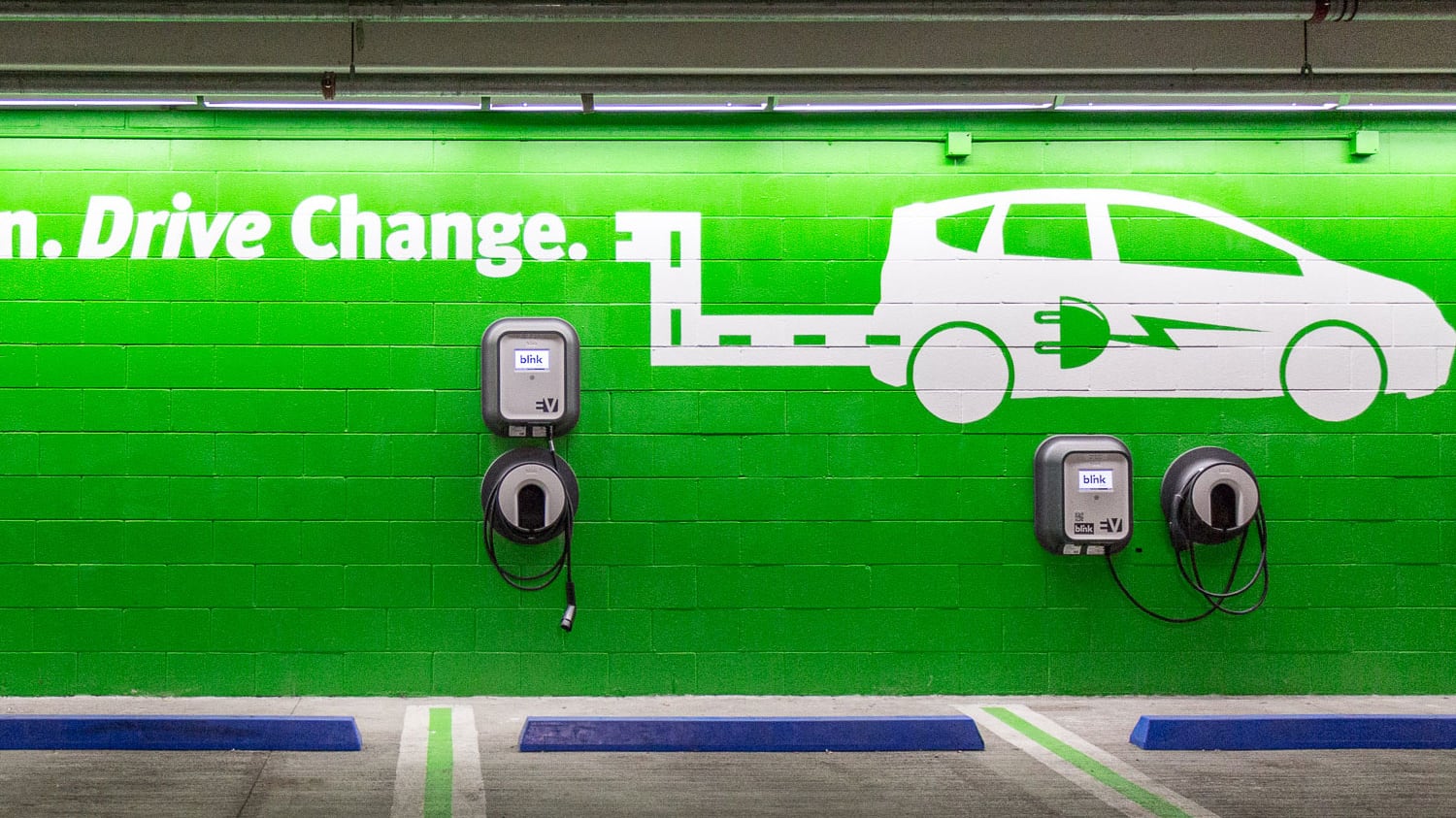Max Toulaud drives a car for Lyft. The state of Oregon could make it an electric car—eventually.
A single father, Toulaud works two jobs to support his family in the U.S. and his parents in Ivory Coast. So when he heard about the Oregon Clean Vehicle Rebate Program, it sounded almost too good to be true. The rebate offers Oregonians up to $2,500 for the purchase of an electric vehicle.
In 2017, the Legislature passed an 0.5 percent tax, called a "privilege tax," on new car sales as part of a huge transportation package. Some of the proceeds were supposed to subsidize the purchase of electric cars by Oregonians, with special help for low-income residents.
But under the Oregon Department of Environmental Quality, the process of releasing rebates has been significantly delayed, thanks in part to a lawsuit by AAA to block the program. Some rebates are late and some are backlogged.
The rebates for low-income Oregonians? They haven't been processed at all.
That's frustrating to Jeff Allen, executive director of Forth, an electric vehicle advocacy group.
"The reason it was written as a rebate was so you could get 'cash on the hood' as part of the transaction," says Allen. Under the current system, many low-income, rebate-eligible car buyers are instead forced to stand by. "Those are the people who can least afford to wait."
The Oregon Department of Revenue has issued $18.2 million to DEQ for the program, but the agency has processed and released only $5.3 million. In other words, nearly $13 million in potential electric vehicle rebates has gone unused for nearly two years.
For the state, the backlog shows the gap between environmental aspirations and reality. Last month, Republicans succeeded in killing House Bill 2020, which would have capped carbon emissions. Gov. Kate Brown now pledges to use executive orders and the state agencies she oversees to reduce carbon output—and electric cars are a key part of that plan.
But the unused rebates show the state is moving toward that goal at the speed of Portland's rush-hour traffic.
Transportation is the top source of carbon emissions in the U.S. "There's no way we can beat this without basically electrifying everything that moves," explains Allen. "If we're going to meet our goals, all new cars sold need to be electric by 2035."
Allen sees three barriers to Portlanders' purchasing electric cars. First is a lack of recognition. "More than half of potential car buyers in California can't name a single model of electric car," says Allen. "In Oregon, it's worse." Second, they worry about where and when they'll get to charge the vehicles. And third, they're daunted by cost.
The first and second issues are easily solved by information and outreach. But the third remains a key problem for drivers like Toulaud, who may not have funds to cover the advance cost.
The state has received 4,004 applications for electric vehicle rebates. It has processed little over half of them. It has received 581 applications from low-income car buyers. It has processed none.
"[That's] absolutely a problem," Allen says.
Part of the delay was a lawsuit. In 2017, AAA Oregon argued that the privilege tax couldn't be used as a source of funding for the EV rebate. (It wanted the money to go toward road repairs instead.) In 2018, the complaint was overruled by the Oregon Supreme Court, but the program had been put on hold.
The other part of the delay lies with the DEQ, which says it doesn't have the resources to implement the full program. Instead, it's hiring the San-Diego-based nonprofit Center for Sustainable Energy, which manages EV rebate programs in several other states, including California, New York and Massachusetts. The center will take over the Oregon program this fall as an independent contractor; it'll work through the backlog of both standard and low-income rebates then.
Jennifer Flynt, spokeswoman for the DEQ, says both setbacks can be traced back to the AAA case. "With that lawsuit going on, we didn't know for sure if we had funding to hire a contractor, and we needed to set it up in the best way possible, so the process was delayed."
Greg Platt of Platt Auto Group, a Milwaukie-based car dealer selling pre-owned electric vehicles, says the program will be on track "eventually." It's the first time the DEQ has done anything like this, he points out. "It's working at the speed of government, I guess."
But Ingrid Fish, spokeswoman for emerging mobility policy at the Portland Bureau of Planning and Sustainability, says the state is right in proceeding cautiously: "You don't want to rush ahead and create problems later, so it's good to dot all i's and cross all t's now."
The DEQ's new California contractor says it hopes to launch fully this fall—more than two years after the original transportation package was introduced in the Oregon Legislature.
Implementation of the low-income rebates is critical because it provides access to Toulaud's demographic, often overlooked when advocates and dealers aim to market electric vehicles.
"The overwhelming narrative is that these are expensive toys for rich white boys," says Allen. "The truth is that there are a whole bunch of EVs that are really affordable. We forget that low-income communities of color often have stronger environmental values than suburban white communities."
That's how Toulaud feels. He's ready to buy if the rebate is there. "I'd be saving [money] and saving the environment too," he says. "We don't spend for gas, we don't pollute the earth."

